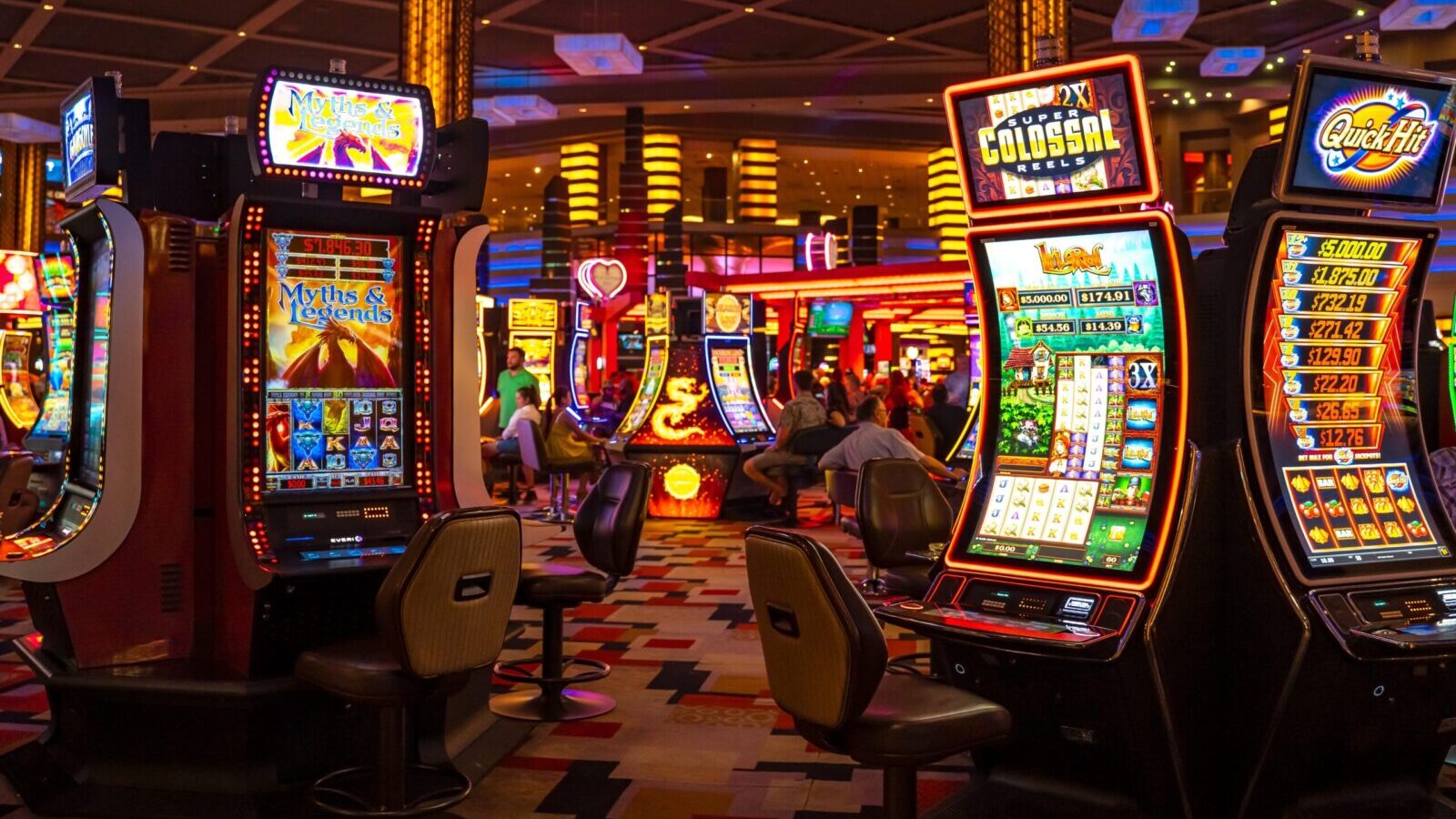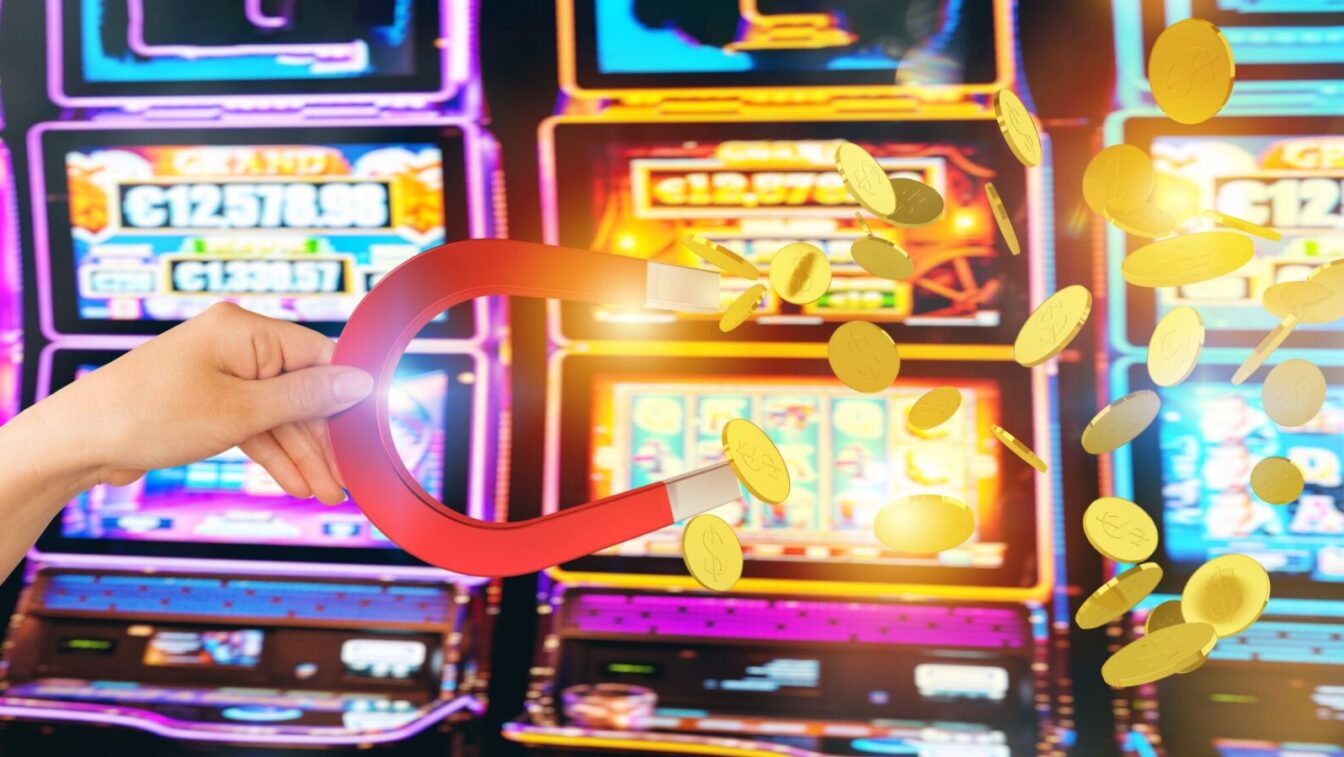Slot Machine Advantage Play Comes With Asterisks And Pitfalls
There are many common misconceptions about how beatable certain casino slots are
3 min

Professional slots players are a secretive group. They roam casino floors looking for slot machines they believe to be on the verge of making large payouts.
However, there’s often as much wishful thinking involved as skillful thinking. While +EV (positive expected value) situations do exist, there’s still luck involved with all slot machines.
“A typical progressive jackpot, where the jackpot’s value increases over time, hits randomly,” slots designer Peter Downie explained.
Yes, there are slot machines in casinos that are more likely to hit jackpots. But even those increased chances are only chances.
That said, one type of slot machine has a jackpot system that can be gamed, and there is a small group of legitimate professionals who can correctly identify those machines and successfully profit off them.
‘Must-hit-by’ progressive jackpots
Advantage player Captain Jack Andrews explained the strategy behind playing these machines in an email to Casino Reports:
“Some slots have ‘Must Hit By’ progressive jackpots,” said Andrews, a co-founder of sports betting tools and educated platform Unabated. “They may start at $250 but must hit by $500. If 1% of the bet amount contributes to that jackpot then a player would need to know the RTP [return to player rate] of the machine and then decide if their loss rate playing the machine is overcome by the jackpot being likely to hit.”
As an example, some G+ Machines have two progressive jackpots. One starts at $25 and must pay out by $50. The other starts at $50 and must hit by $500. The jackpots only increase one penny for every $1.70 that players win.
Players who know this level of detail can calculate when to begin playing to be likely to make more on the jackpot than they’ll lose trying to reach it.
Many players, however, misidentify regular machines as advantage slots in their attempts to beat slot machines.
The end result still varies
Gambling psychology professor Dr. Michael Dixon of the University of Waterloo has studied gambling behavior and studied the slot machines themselves.
“We got the programming documents for a number of slot machines through the Freedom of Information Act, and so we have a pretty good understanding of how that [payout calculation] works,” Dr. Dixon said. “We don’t have any evidence that the programs pay out every 5,000 spins or 10,000 spins or anything like that.”
Even if a slot appears to be an advantageous state, the payout on some machines can vary and the advantage can be lost — as exemplified in a message board thread from 2022. From the thread:
“On my last visit I saw a Buffalo Diamond machine, which has visible free spin bonuses that go up during play. It had as one of its bonuses 48 free spins at 4X the bet, which is quite high. There was another bonus for a well-above-average amount, and thank goodness the bonus was offered at the 1X level.
“I was prepared to put five or six hundred bucks in this machine to break the free spins. I didn’t have to. It took me several bonuses and spins of the wheel, but I lucked into the 51 spins at 4X. Based on my experience with Buffalo machines I was getting ready to put in my order for champagne and caviar. Good thing I didn’t, because after getting 10 more free spins I won a total of $83 — on 61 spins at 4 times the bet. I ended up lucky in that I didn’t lose any money, but I walked away in disgust.”
Payout percentages
Each slot is designed to pay a certain amount of money back to players over its lifetime. That payback percentage can range from the low 80s to the high 90s.
A loose machine has a payout close to 100%, and a tight machine has a payout percentage that’s much lower. But the payout percentage is never 100%.
“We’ve done studies showing experienced gamblers can tell one of these tight machines from a loose machine, but it takes like 30 sessions for them to do it,” Dr. Dixon said.
It’s tempting for people to believe they can make money playing slots professionally, but it’s not easy to pull off. Slots are classified as games of chance because skill plays a negligible role in winning on them.
And the false confidence that certain slots are uniquely primed to award prizes can often lead to chasing losses. It’s classic problem-gambler behavior that can befall experienced slots players and new ones alike.
“While experienced slots players may be able to tell a higher payback percentage machine from a lower one, the bottom line is, if you play any of these machines as long as some of these people with gambling problems do, [you’re] going to end up losing everything,” Dr. Dixon said.
There are some machines that can be taken advantage of by sharp players. But misidentifying which slot machines allow players to win has at least much of a chance of leading to problem gambling as it does of leading to a sustainable career as an advantage player.



